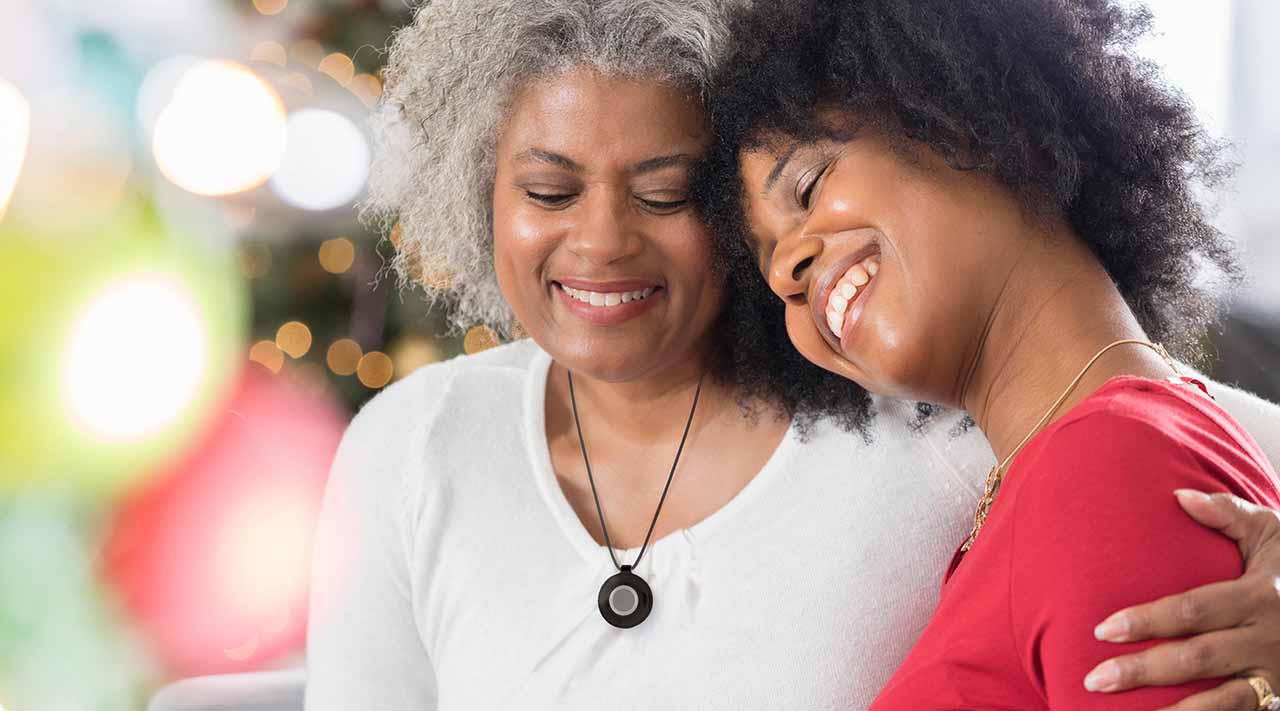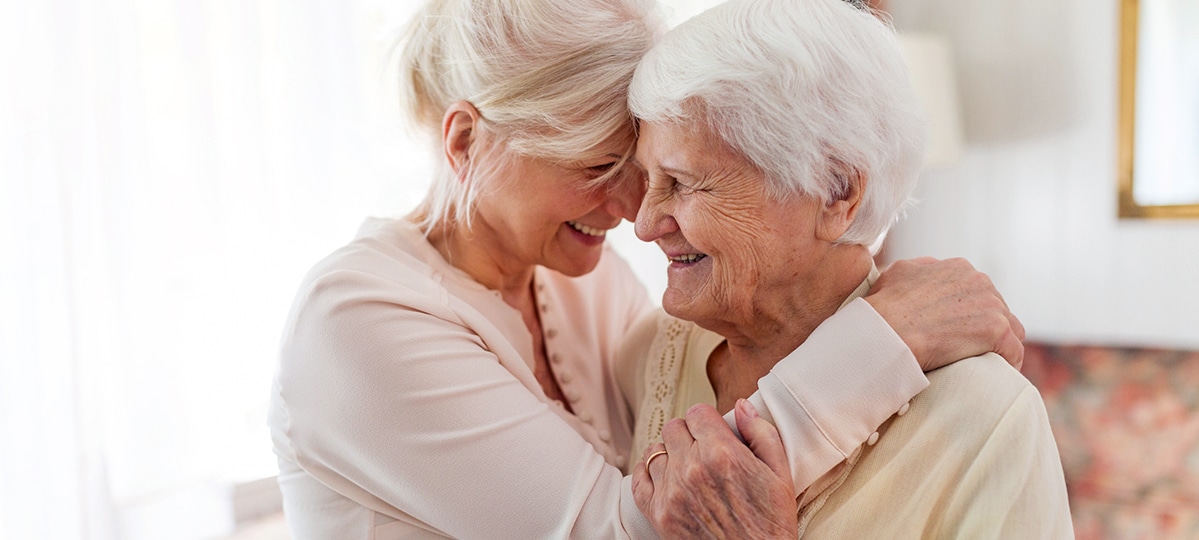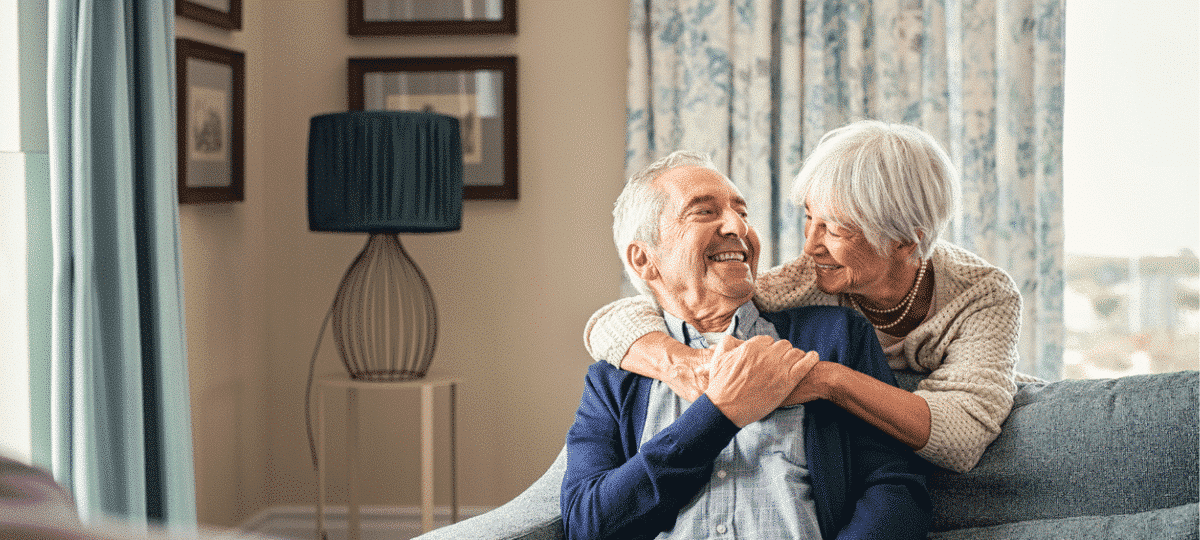If you’re caring for a parent or loved one, any time is the right time to get a medical alert system.
Studies show that wearable medical alert systems are known to increase, rather than diminish, independence. And who doesn’t love independence? If your loved one enjoys being active, running to the gym for her water aerobics, or spending the day with friends in town, then a Medical Alert system is right for her.
Interactive Caregiving: A Communication Tool
The best time to introduce the concept of a medical alert system with a fiercely independent parent is in the context of a discussion about independence. One way to do that is through “interactive caregiving,” as psychologists refer to it.
Interactive caregiving is doing activities of daily living with your loved one, such as reading the newspaper, folding laundry or gardening together. By participating in these ordinary activities together “you communicate the message that you know she can do them on her own, but you just want to participate in the joy of living with her and to enhance the closeness in an already good relationship,” says Kate Twohy, MEd, an educator who’s designed programs in Brooklyn-based senior living communities.
When you communicate something in this context, such as a health-oriented message, your parent hears it as positive. It’s taken in the spirit of love and equity—the two of you are on the same footing, and so communication is effective. That’s the time to offer a gym membership, for instance, or a Medical Alert device with GPS monitoring.
Living Alone—and Liking It That Way
If your parent loves being at home by himself, then a Medical Alert bracelet is right for him. Sometimes, a parent newly fragile in some respect (say, vision slipping or slight forgetfulness) resists at-home care. They argue that they don’t like “strangers” in the house. This is an added important reason for a medical alert system because it becomes difficult to gauge whether your parent is being irrational about visitors or whether he truly is still okay on his own, at least for a little while.
Either way, the protection of a Medical Alert system functions as a buffer against unforeseen injuries.
Clear Signs That It’s Time for an Emergency Plan
For other loved ones, specific signs emerge that she needs an emergency plan in case a fall should happen or some other mishap, like walking into a doorjamb or falling in the shower. An ideal plan includes having a reliable neighbor or caregiver on board for emergencies and having a Medical Alert system. It also might mean adding the Fall Detection feature to her Medical Alert; that way, the device works even if she can’t push the button due to unconsciousness. The emergency system is still activated through wireless technology and an algorithm about movement.
Here are some signs and symptoms that your loved one is fragile or at risk of an injury:
- a recent fall
- memory slippage, like getting lost or forgetting keys or a purse
- subtle mood or personality changes
- frailty or weight loss
- balance and walking issues
- problems with vision
- a drop in alertness
- home hazards such as stairs, clutter or loose carpets that can cause tripping
The Trick: Wearing the Device Rather than Keeping it on the Counter
The challenge might be to convince your loved one to wear a mobile alarm like Medical Alert. Here are a few tricks you can use to overcome resistance to a wearable medical alert device:
- Show your loved one how the pendant version can be tucked into a shirt artfully. Say it’s close to her heart where you are—and so too are her team of emergency responders, who are button-close.
- Compare the aesthetics of the bracelet version to a wearable fitness tracker that many of her friends are sporting these days. These bracelets convey health consciousness, not weakness.
- Point out the ease of pushing a medical alert button—far easier than working the remote control for her TV! Present it as a cool gizmo that just might be the easiest tech item to work.
Humor and love—and the sooner-rather-than-later approach—are keys to getting your loved one on board with a Medical Alert system.




